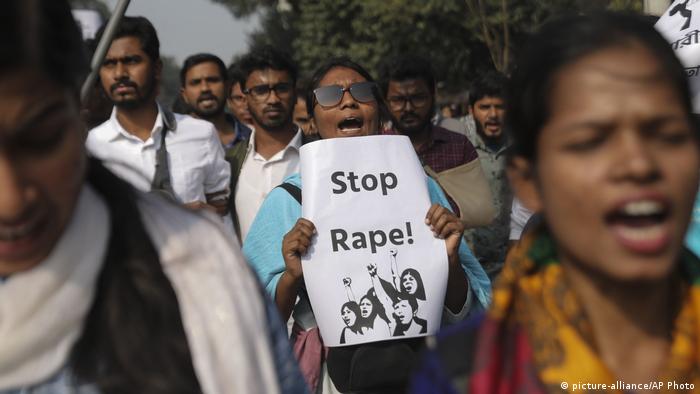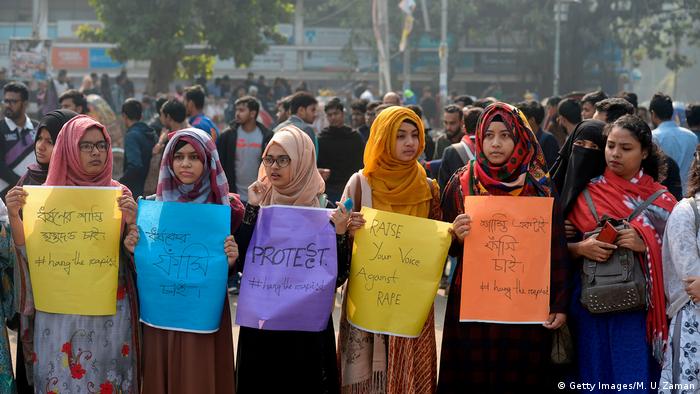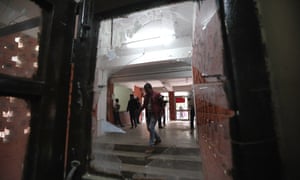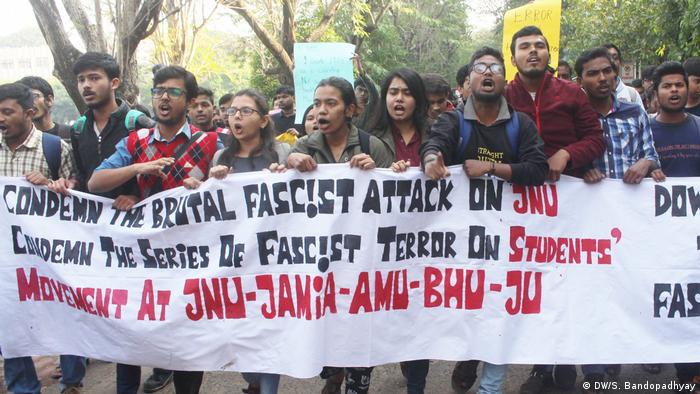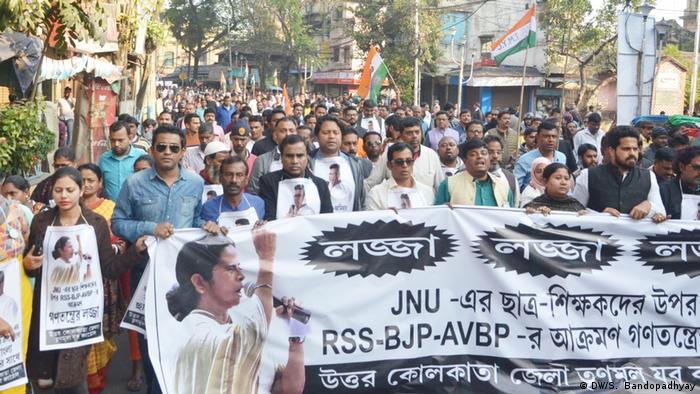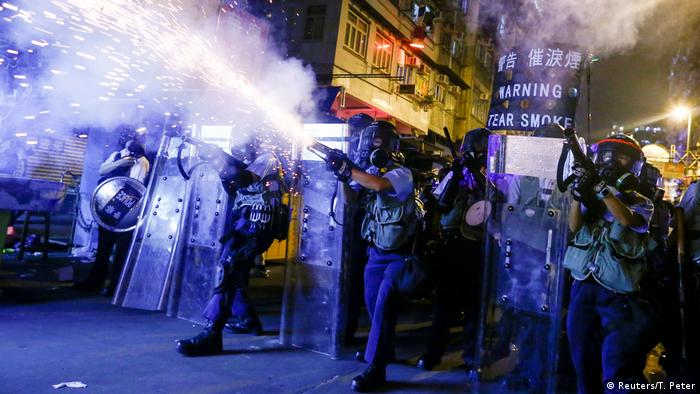Less is more, according to a growing movement of minimalists. They say a clean space can clear the head, but could it also draw a link between personal and planetary well-being?

If everybody lived in the same way as the average German, we would need almost three planet Earths. If we lived like Americans, it would be almost five. That's according to calculations by the Global Footprint Network.
But what if people chose a different lifestyle — a less consumerist one filled with less stuff?
Read more: Our consumption choices are driving biodiversity loss
Minimalist blogger and podcaster Elisa Stangl doesn't have a couch or even a bed at home. She, her husband and their 2-year-old daughter sleep on Japanese tatami mats in their small flat in southern Germany. "We don't own a lot," she told DW.
Stangl adopted her minimalist lifestyle while still a student, for financial rather than environmental reasons. Travelling the world compounded her sense that she was better off living with less.
"I just learned that don't need anything other than the things I have in my backpack," she said. "So I figured, why should I need more when I'm at home?"
Now, Stangl says her main motivation is living mindfully. Having less stuff means she and her family can focus on what's important to them. They need less money, and therefore have more time for hobbies like hiking and exploring nature.

Stangl and her family plan to move out of their apartment and into a converted van so they can spend more time traveling
But Stangl also believes a minimalist lifestyle goes hand in hand with environmental responsibility.
"Living a mindful life doesn't only concern the individual," she said. "If you get to know how to live mindfully, then you know that you have to respect nature, because you live with nature and it gives you something, and you have to give something back."
Minimal lifestyles for personal rewards
Beyond the decluttering craze sparked by Japanese tidying expert Marie Kondo, there's a growing interest in getting rid of stuff, with the idea that equates living more minimally with living more meaningfully.
Browsing the countless minimalist blogs, vlogs and podcasts, most overlook eco-impacts in favor of focusing on the personal benefits of having fewer belongings.
That's reflected in an ongoing study into minimalist lifestyles by Duke University in the US.
"Typically, people adopt minimalism in the interest of their own psychological wellbeing — to reduce stress and cultivate mental clarity, for example," the study's lead researcher Aimee Chabot told DW.
"But as their practice evolves, their motivations for pursuing minimalism often expand to include more outwardly focused sources of motivation, such as environmental or ethical concerns."
Chabot and her team have so far surveyed more than 800 people, most of them in the US.
"Only about 10% of survey respondents said that reducing their environmental impact was their primary motivation for practicing minimalism, though about 70% said they did consider environmental impacts to be one of their reasons for doing so," she said.
Unsustainable consumption
Even as an unintended consequence, living with less is certainly good for the planet.
A 2015 study found that more than 60% of global greenhouse gas emissions are due to household consumption. That's mainly down to transport and food, but also the other products people buy which generate carbon emissions in production.
Read more: World marks earliest 'Earth Overshoot Day'
Household consumption is of course higher in wealthier countries. As economies around the world develop, consumption is growing. The more people that have money to spend, the more stuff they buy.
But it doesn't necessarily make them happy. As studies show, higher income and bigger spending power boosts well-being only up to a certain point.
And as the minimalism trend suggests, more and more people are becoming disillusioned with the materialistic societies they live in.
Happiness is low emission
In her 2014 book Happier People Healthier Planet, academic Teresa Belton argues that the factors driving human well-being actually have very little environmental impact.
"What generates and sustains well-being are all sorts of what I call 'non-material assets,'" she told DW. "Good relationships, contact with the natural world. Being creative, having a sense of belonging and community and purpose and meaning, being actively engaged in life and things like that, which don't involve any material consumption — or very little."
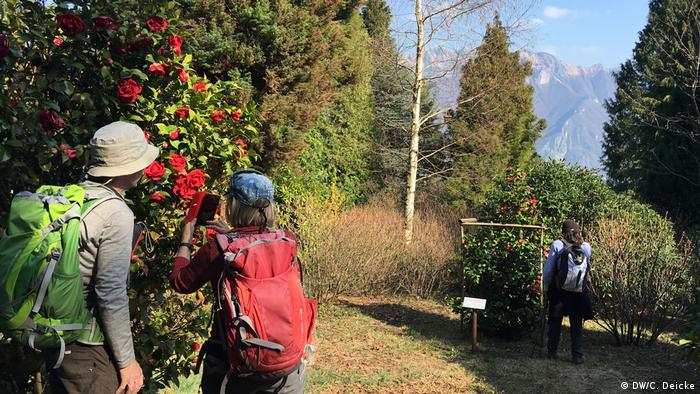
Spending time in natural green spaces has been found to improve health and well-being
Belton interviewed more than 100 people in the UK who had chosen to live lower-consumption lives. Unlike the Duke University researchers in the US, she found environmental concerns were the most common motivation.
Shift in mindset
"If we as individuals and societies made our priority our well-being, by focusing on the things that really do underpin well-being, rather than on profit-making and the material consumption that goes into profit making, then the world would be a very much better place in all respects," Belton said.
With their focus on conscious, value-driven lives, even minimalists who aren't primarily interested in their carbon footprint would no doubt agree. And those of us whose lives are full of clutter and consciences heavy on emissions might do well to see living with less as a relief, not a sacrifice.
Beyond the individual level, governments are yet to be convinced to focus on human rather than financial and material growth. But leveraging the link between human and planetary well-being could be key to shifting our economies away from consumption and tackling the climate crisis.
DW RECOMMENDS
World marks earliest 'Earth Overshoot Day'
By the end of Monday, humanity's allotment of natural resources for 2019 will be all used up, according to a report. Over the past 20 years, Earth Overshoot Day has moved up three months to July 29. (29.07.2019)
Can carbon trading cut EU emissions to net zero?
In an effort to cut carbon emissions, the EU established a cap-and-trade system 15 years ago. So far, it hasn’t had much impact. So how does it work, and how can it be made more effective? (03.12.2019)
Environmental psychology: How do you feel about that coffee to go?
DW's Hannah Fuchs likes to think she's pretty responsible about her environmental impact. But the guilt induced by a take-out coffee got her asking why even the most eco-conscious of us slip up. (21.02.2019)
'Lowering our personal carbon footprint is a question of credibility'
Activist Cara Augustenborg says individual action to cut greenhouse gases is essential, but it won't be enough without political engagement and system change. (06.03.2018)
'Our consumption choices are driving biodiversity loss'
Humankind is decimating plant and animal species, with alarming consequences for the planet. From the UN biodiversity conference in Egypt, Cristiana Pasca explains why preserving biodiversity is key to our survival. (28.11.2018)
WWW LINKS
Global Footprint Network
Study: Environmental Impact Assessment of Household Consumption
Study: High income improves evaluation of life but not emotional well-being
Global Footprint Network
Study: Environmental Impact Assessment of Household Consumption
Study: High income improves evaluation of life but not emotional well-being

